Select Language
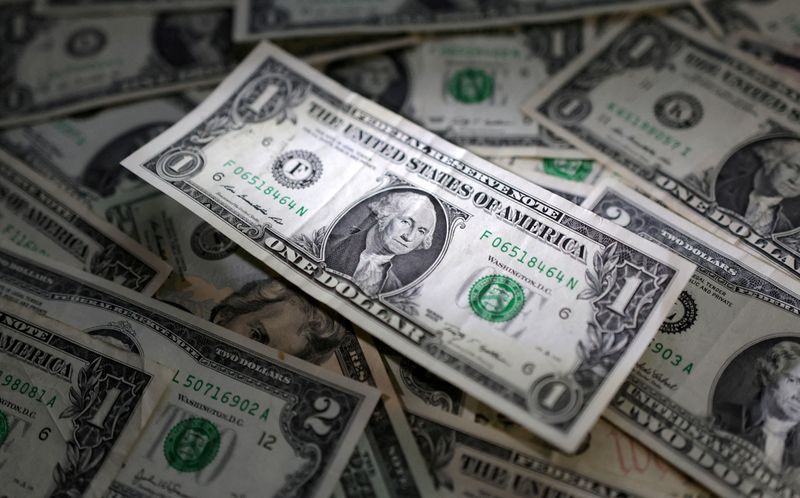
By Kevin Buckland
TOKYO (Reuters) - The dollar traded close to a two-week high versus the yen on Wednesday ahead of a highly anticipated reading of U.S. inflation that could provide clues on the pace of Federal Reserve interest rate cuts.
The Australian dollar sagged near a four-month low after a dovish tilt to the central bank's policy outlook a day earlier. That also weighed on New Zealand's kiwi, which languished near a one-year trough.
Investors will also watch headlines from China's closed-door Central Economic Work Conference, which runs this week.
The anitipodean currencies got a boost at the start of the week after Beijing pledged more fiscal and monetary support for the economy next year, although that was overshadowed by Tuesday's Reserve Bank of Australia dovish statement. RBA Deputy Governor Andrew Hauser is due to speak later on Wednesday.
The dollar eased 0.12% to 151.80 yen as of 0045 GMT, but remained close to the overnight peak of 152.18 yen, its strongest level since Nov. 27.
The dollar index, which measures the currency against the yen and five other major peers, was steady at 106.36, after rising to a one-week high of 106.63 in the previous session.
Traders currently assign 85% odds to a quarter-point rate cut by the Fed on Dec. 18.
Economists expect both headline and core consumer prices to have risen 0.3% in November, from previous increases of 0.2% and 0.3%, respectively.
"Should this scenario materialize, there could be concerns that the Federal Reserve may not be able to cut rates as quickly as hoped, potentially benefiting the U.S. dollar," said James Kniveton, senior corporate FX dealer at Convera.
In the case of Australia, "while the market anticipates early cuts, the RBA has not confirmed this plan, and there is a precedent for the market getting ahead of the RBA, only to later adjust its expectations," Kniveton said.
Traders have ramped up bets for a quarter-point reduction in February to 62%, from closer to 50% a day earlier.
The Aussie was little changed at $0.6380 after dipping to $0.63655 a day earlier for the first time since Aug. 5. The kiwi was steady at $0.57985 after sliding to $0.5792 on Tuesday, a level not seen since November of last year.
The European Central Bank policy decision on Thursday is the main one investors are focusing for the remainder of this week, with markets certain of at least a quarter-point reduction.
The euro was steady at $1.052975. Sterling was little changed at $1.2777.
The Swiss franc held firm at 0.8830 per dollar, with markets assigning 61% odds to a half-point rate cut on Thursday from the Swiss National Bank.
The Bank of Canada is seen as likely to cut by a half point later on Wednesday, which is helping to pin the loonie near a 4-1/2-year trough to the greenback. One U.S. dollar last bought C$1.4173.
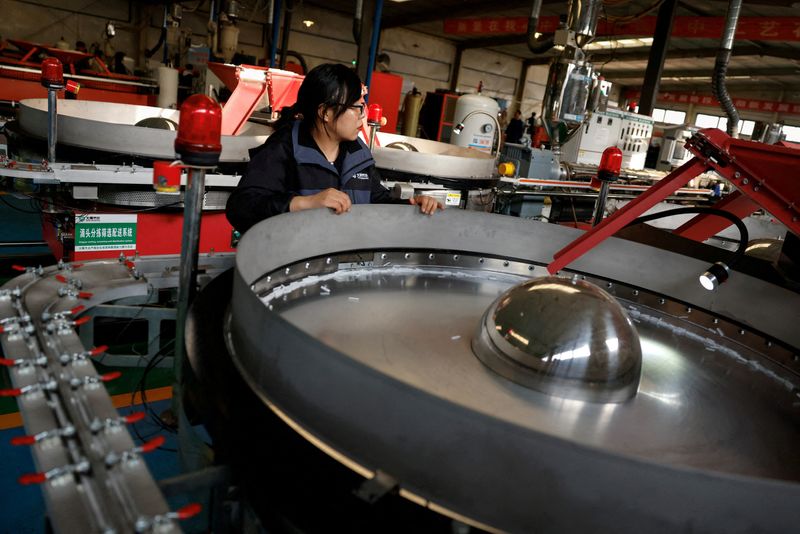
By Ellen Zhang and Kevin Yao
BEIJING (Reuters) -In one of their most dovish statements in more than a decade, Chinese leaders signalled on Monday they are ready to deploy whatever stimulus is needed to counter the impact of expected U.S. trade tariffs on next year's economic growth.
After a meeting of top Communist Party officials, the Politburo, officials said they would switch to an "appropriately loose" monetary policy stance, and "more proactive" fiscal levers.
The previous "prudent" stance that the central bank had held for the past 14 years coincided with overall debt - including that of governments, households and companies - jumping more than 5 times. Gross domestic product (GDP) expanded roughly three times over the same period.
The Politburo rarely details policy plans, but the shift in its message shows China is willing to go even deeper into debt, prioritising, at least in the near term, growth over financial risks.
"From prudent to moderately loose is a big change," said Shuang Ding, chief economist for Greater China and North Asia at Standard Chartered (OTC:SCBFF). "It leaves a lot of room for imagination."
Tang Yao, associate professor of applied economics at Peking University, says this policy reset is needed, because slower growth would make debt even more difficult to service.
"They've by-and-large made peace with the fact that the debt-to-GDP ratio is going to rise further," said Christopher Beddor, deputy China research director at Gavekal Dragonomics, adding that this was no longer "a binding constraint."
It's unclear how much monetary easing the central bank could deploy and how much more debt the finance ministry could issue next year. But analysts say that works in Beijing's favour.
U.S. President-elect Donald Trump returns to the White House in January, having threatened tariffs in excess of 60% on U.S. imports of Chinese goods.
The timing and the ultimate level of the levies, which a Reuters poll last month predicted at nearly 40% initially, will determine Beijing's response.
"They are willing to do 'whatever it takes' to achieve the GDP target," said Larry Hu, chief China economist at Macquarie.
"But they will do so in a reactive way," Hu said. "How much they will do in 2025 will depend on two things: their GDP target and the new U.S. tariffs."
Next (LON:NXT) year's 2025 growth, budget deficit and other targets will be discussed - but not announced - in coming days at an annual meeting of Communist Party leaders, known as the Central Economic Work Conference (CEWC).
Reuters reported last month that most government advisers recommend that Beijing should maintain a growth target of around 5%, even though that pace seemed difficult to reach throughout this year.
The tone of the Politburo statement suggests that China won't lower its growth ambitions for 2025, says Zong Liang, chief researcher at state-owned Bank of China. But it also suggests that China is likely to set an initial budget deficit target of around 4%, its highest ever.
"Beijing may want to use the 'around 5.0%' growth target to show that it won't cave to Trump's threatened 60% tariff and other restrictive measures imposed on China," said Ting Lu, chief China economist at Nomura, who also expects a 4% fiscal deficit, up from 3% in 2024.
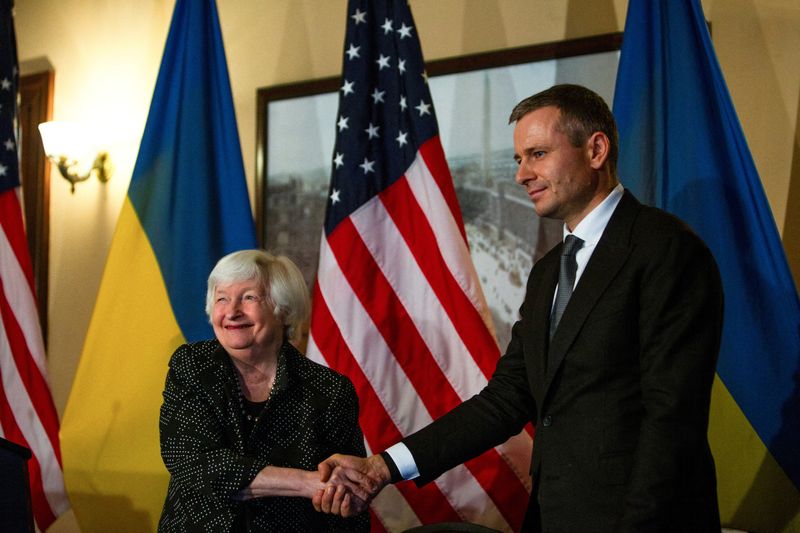
By David Lawder
WASHINGTON (Reuters) - The U.S. Treasury Department on Tuesday said it transferred the $20 billion U.S. portion of a $50 billion G7 loan for Ukraine to a World Bank intermediary fund for economic and financial aid to the war-torn country.
The Treasury Department said the disbursement makes good on its October commitment to match the European Union's commitment to provide $20 billion in aid backed by frozen Russian sovereign assets alongside smaller loans from Britain, Canada and Japan to help the Eastern European nation fight Russia's invasion.
The disbursement prior to President-elect Donald Trump's inauguration in January is aimed at protecting the funds from being clawed back by his administration. Trump has complained that the U.S. is providing too much aid to Ukraine and said he will end the war quickly, without specifying how.
The $50 billion in credit for 30 years will be serviced with the interest proceeds from some $300 billion in frozen Russian sovereign assets that have been immobilized since Russia invaded in February 2022. The G7 democracies have been discussing the plan for months and agreed on terms in October, prior to Trump's election.
President Joe Biden's administration initially sought to split the $20 billion loan in half, with $10 billion to be used for military aid and $10 billion for economic aid, but the military portion would have required approval by Congress, a task made more difficult by Republicans' sweeping election victory. With Tuesday's transfer, the full amount will be devoted to non-military purposes.
The Treasury said the funds were transferred to a new World Bank fund called the Facilitation of Resources to Invest in Strengthening Ukraine Financial Intermediary Fund (FORTIS Ukraine FIF). The global lender's board approved the creation of the fund in October with only one country, Russia, objecting.
The bank, whose charter prevents it from handling any military aid, has run a similar humanitarian and economic intermediary fund for Afghanistan.
U.S. Treasury Secretary Janet Yellen personally oversaw staff executing the wire transfer of the $20 billion to the World Bank fund, a department official said.
"These funds - paid for by the windfall proceeds earned from Russia's own immobilized assets - will provide Ukraine a critical infusion of support as it defends its country against an unprovoked war of aggression," Yellen said in a statement.
"The $50 billion collectively being provided by the G7 through this initiative will help ensure Ukraine has the resources it needs to sustain emergency services, hospitals, and other foundations of its brave resistance," she added.
U.S. dollar strength since Trump's Nov. 5 election victory has diminished the loan slightly in dollar terms. According to a G7 loan term sheet, the EU will provide $18.115 billion euros ($19.1 billion), Canada C$5 billion ($3.52 billion), Britain 2.258 billion pounds ($2.88 billion) and Japan 471.9 billion yen ($3.11 billion).
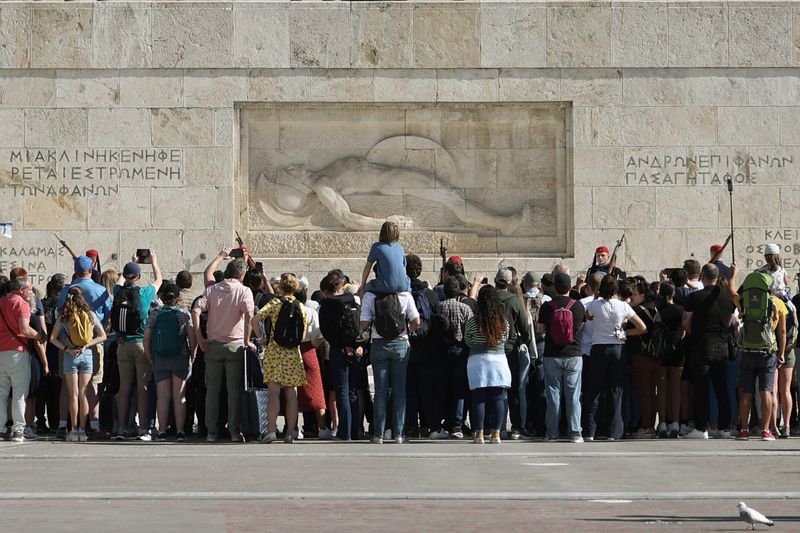
ATHENS (Reuters) - Greece expects record tourism revenues of about 22 billion euros ($23.24 billion)this year, Tourism Minister Olga Kefalogianni said on Tuesday, around a 10% rise from 2023.
Last year, the Mediterranean country collected what was then a record of 20 billion euros from tourism, a key driver for its economy.
"This year we expect (revenues) of about 22 billion euros," Kefalogianni told public broadcaster ERT.
($1 = 0.9467 euros)
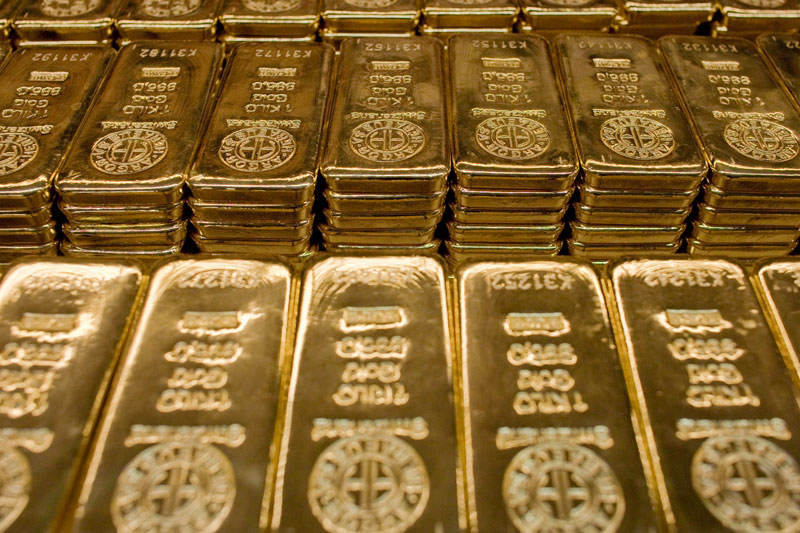
Investing.com-- Gold prices rose in Asian trade on Tuesday, extending recent gains as heightened geopolitical tensions in Syria and a selloff on Wall Street fueled safe haven demand for the yellow metal.
Among industrial metals, copper prices steadied on Tuesday after clocking sharp gains on promises of more stimulus measures from top importer China. But they were still nursing steep losses in the past two months.
Further gains in metal markets were quashed by anticipation of more key economic cues in the coming days, with the U.S. dollar steady ahead of key inflation data due on Wednesday.
Spot gold rose 0.4% to $2,671.62 an ounce, while gold futures expiring in February rose 0.3% to $2,694.69 an ounce by 23:30 ET (04:30 GMT).
Gold demand underpinned by geopolitical tensions
Spot gold surged about 1% on Monday after heightened tensions in the Middle East sent traders into safe havens.
Rebel forces took Syria’s capital Damascus over the weekend, ending the reign of President Bashar al-Assad, who fled to Russia.
Syria’s regime change has ties to the Sunni Islamic sect, potentially putting the country at odds with Iran. Israel was also seen launching an offensive against Syria.
Syria’s situation put investors on edge over a potential escalation of geopolitical tensions in the Middle East, pushing them into traditional safe havens such as gold.
This trend was furthered by overnight losses on Wall Street, as major technology stocks pulled back sharply from a recent rally.
Anticipation of several key economic cues in the coming days are expected to keep investors on edge. Central banks in Canada, the European Union and Switzerland will decide on interest rates this week, followed by the Federal Reserve next week.
Other precious metals were less upbeat than gold. Platinum futures fell 0.4% to $944.85 an ounce, while silver futures steadied at $32.620 an ounce.
Copper steadies from stimulus-driven rally; China import data positive
Benchmark copper futures on the London Metal Exchange fell 0.3% to $9,211.0 a ton, while February copper futures fell 0.2% to $4.2542 a pound.
Both contracts rallied 1.5% on Monday after China’s top political body pledged to loosen monetary policy and dole out more targeted stimulus measures. The pledges ramped up hopes that economic growth in China will improve, in turn boosting its appetite for commodities.
Chinese trade data also offered some positive cues. While overall exports and imports read weaker than expected for November, China’s copper imports raced to a one-month high.
Focus this week is now on China’s Central Economic Work Conference, which is set to begin on Wednesday.
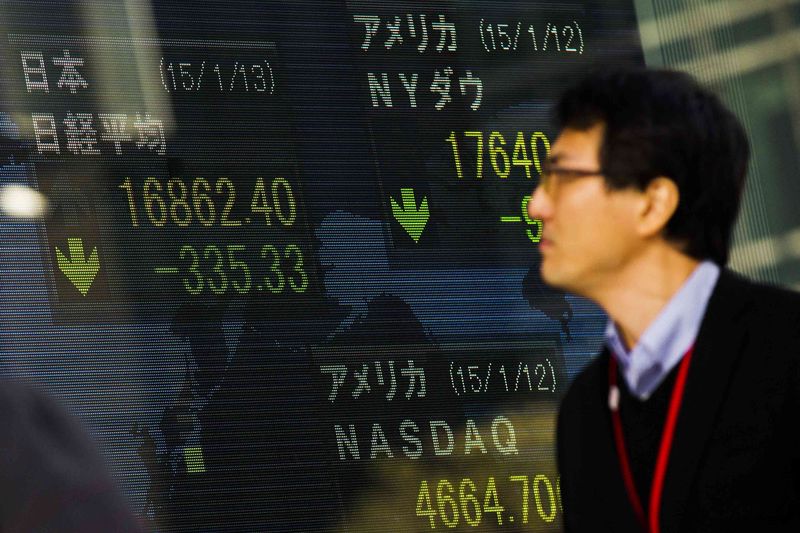
Investing.com-- Most Asian stocks jumped on Tuesday with Chinese shares rallying on optimism around more stimulus measures from the world’s second largest economy, while focus was on the Reserve Bank of Australia’s interest rate decision due later in the day.
China has committed to implementing more proactive fiscal stimulus measures and adopting moderately looser monetary policies in 2025, the government signaled during a Politburo meeting on Monday.
Optimism over Chinese stimulus saw Asian markets largely brush off a weak lead-in from Wall Street, as losses in technology shares dragged U.S. benchmarks off record highs. U.S. stock index futures were flat in Asian trade, ahead of key consumer price index inflation data for November, due on Wednesday.
China, Hong Kong shares rally, S. Korea stocks rebound
The Shanghai Composite index climbed 1.6% on Tuesday, while the Shanghai Shenzhen CSI 300 index jumped more than 2%.
This optimism spread to other Asian markets as well, as regional investors were hopeful that China's measures to boost its sluggish economy will support global demand.
This comes at a time when fears of a possible U.S-China trade war have clouded the outlook for Asian economies, as incoming U.S. President Donald Trump has vowed to impose additional tariffs on Chinese exports.
The Hang Seng index surged 1.5% on gains in locally listed Chinese stocks.
Additionally, markets such as Japan and South Korea also showed signs of positive movement, reflecting broader regional optimism. Japan’s Nikkei 225 was up 0.2%, while TOPIX rose 0.3%.
South Korea’s KOSPI index rebounded 2.4% after sharp declines in the previous session. Investors looked past some fears surrounding an ongoing political crisis in the country, after a tumultuous week which saw South Korea's President Yoon Suk Yeol's failed attempt to impose martial law in the country.
Singapore’s FTSE Straits Times Singapore index gained 0.6%, and Philippine’s PSEi Composite index rose 0.5%, while India's Nifty 50 Futures indicated a slight dip at open.
RBA rate decision awaited; Aussie miners jump on China stimulus cheer
The Reserve Bank of Australia's interest rate decision is due later in the day, where it is expected to keep rates unchanged but may temper its hawkish stance amid signs of weakening economic conditions in Australia.
Australia’s S&P/ASX 200 fell 0.4% on Tuesday as sharp gains in miners were countered by a slump in technology shares.
Miners were on the rise after China’s announcement, with mining giants like Rio Tinto Ltd (ASX:RIO), BHP Group Ltd (ASX:BHP), and Fortescue (ASX:FMG) surging between 4% and 7%, while tech shares plunged tracking overnight losses on the tech-heavy NASDAQ Composite index.
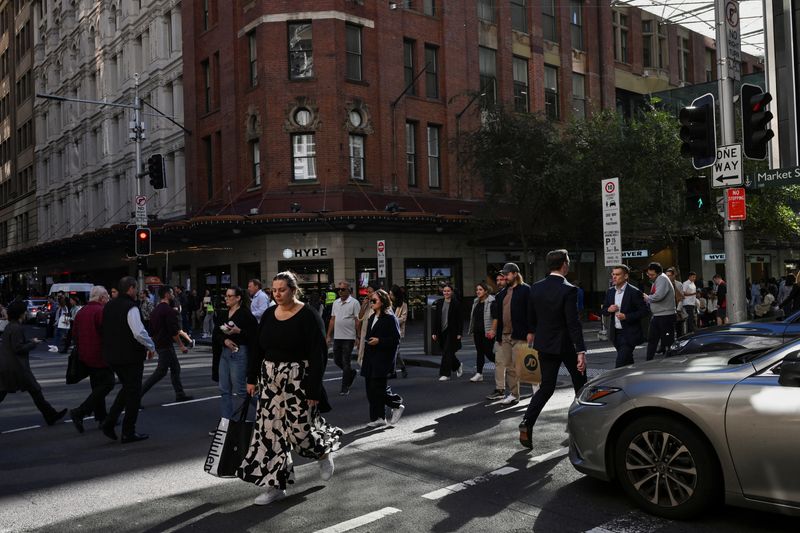
SYDNEY (Reuters) - A measure of Australian business activity slid to its lowest since the pandemic in November as confidence took a turn for the worse amid tough trading conditions in the manufacturing and retail sectors.
The survey from National Australia Bank (OTC:NABZY) (NAB) showed its index of business conditions dropped 5 points to +2 in November, its weakest reading since late 2020. The more volatile confidence index sank to -3, more than reversing October's jump to +5.
Sales slowed a sharp 8 points to +5 in the month, while profitability sank 6 points to -1 and employment intentions dipped 1 point to +2.
"While we were optimistic last month, it appears the trend of well below-average confidence remains intact," said Alan Oster, chief economist at NAB.
"Conditions in the goods sector remain weak," he added. "Interestingly conditions in the services sectors – recreation & personal services and finance, business & property services - continue to track at a higher rate."
Activity fell across all industries with retail and manufacturing reporting the worst conditions.
The disappointing results suggest the economy has not picked up following a very soft performance in the third quarter when household consumption struggled in the face of high borrowing costs.
The Reserve Bank of Australia wraps up its December policy meeting later on Tuesday and is widely expected to hold rates at 4.35%, where they have been for the past year.
Measures of cost pressures in the NAB survey were mostly steady in November, though retail prices slowed to a quarterly pace of 0.6%, from 1.1% in October.
Growth in input costs ticked up to 1.1%, while labour costs held at 1.4%. The official measure of consumer price inflation had slowed sharply to 2.8% in the September quarter, though much of that was due to temporary government rebates on electricity bills.
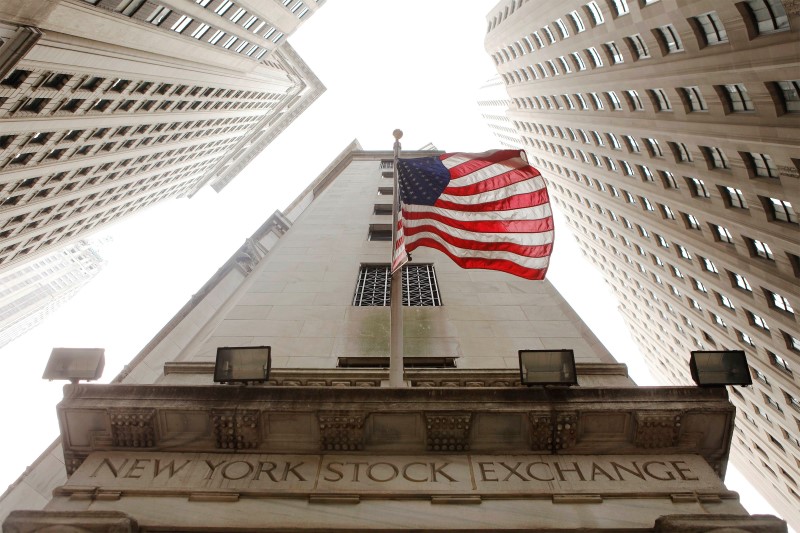
Investing.com -- The S&P 500 closed lower Monday, pressured by Nvidia-led weakness in tech just days ahead of key inflation data.
At 4:00 p.m. ET (21:00 GMT), the Dow Jones Industrial Average was fell 240 points, or 0.5%, while the S&P 500 index fell 0.6%, and the NASDAQ Composite slipped 0.6%.
Nvidia, AMD drag down tech
NVIDIA Corporation (NASDAQ:NVDA) stock fell 2.6% after China launched an investigation into the chipmaker over suspected violations of the country's anti-monopoly law, in a move that will likely be seen as a retaliatory move against Washington's recent chip curbs.
A 5.6% slump in Advanced Micro Devices Inc (NASDAQ:AMD) also weighed on chip stocks after Bank of America downgraded the company neutral from buy, citing higher competitive risks.
Macy's attracts activist investor attention; Mondelez targets Hershey takeover
Macy’s (NYSE:M stock rose nearly 2% following a report that activist investor Barington Capital is urging the retailer to create a real-estate unit and consider options for its Bloomingdale's and Bluemercury chains after building an undisclosed stake.
Hershey Co (NYSE:HSY) climbed more than 10% after Bloomberg News reported that Mondelez (NASDAQ:MDLZ) was exploring a takeover of the company.
The quarterly earnings season is gradually drawing to a close, but investors will still be able to study Oracle's (NYSE:ORCL) results after the close Monday.
CPI data awaited for more rate cues
The November consumer price index, due on Wednesday will offer more cues on inflation, the US economy and potential interest rate cuts.
The headline reading is expected to show a 2.7% year-on-year increase, a monthly increase of 0.2%, while core CPI inflation, which excludes volatile food and energy prices, is also expected to have remained significantly above the Federal Reserve's 2% target.
The increase in inflation for November is likely to be driven by higher food and energy prices, Goldman Sachs said in a recent note.
While the central bank is widely expected to cut interest rates by 25 basis points next week, it is also expected to slow its pace of rate cuts in 2025, given the still elevated inflation and a strong labor market.
Data on Friday showed stronger-than-expected growth in nonfarm payrolls in November, but the participation rate shrank, while growth in manufacturing payrolls underwhelmed.
"[T]he labor market is softer than in 2019 and has yet to convincingly stabilize, and this is the key reason we continue to pencil in further consecutive cuts," Goldman Sachs added.
(Peter Nurse, Ambar Warrick contributed to this article.)
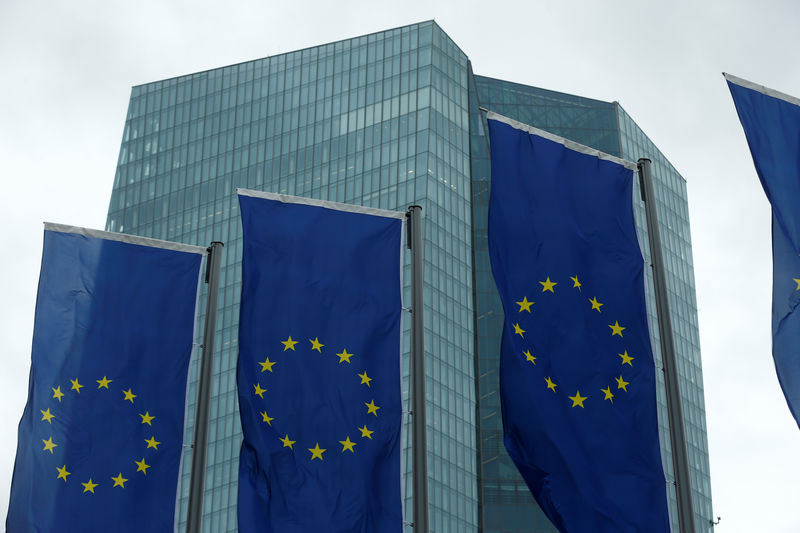
Investing.com -- President-elect Donald Trump has already signaled that trade tariffs are likely to form part of his political agenda, but against concerns that a tit-for-tat U.S.-EU trade spat could threaten a fresh wave of inflation, Citi argues that tariffs may prove deflationary in the Eurozone at a time when the economy is in the doldrums.
"Even if the EU retaliates like-for-like with reciprocal tariffs, the HICP impact is likely negligible," Citi economists said in a recent note.
Imports from the U.S. make up just over 10% of euro area goods imports, a quarter of which is energy but this is unlikely to be taxed, the economists said. With consumption goods accounting for just about 6% of total imported U.S. goods in the Eurozone, the import price-to-HICP passthrough is "usually low," they added.
The potential of a 10% blanket US tariff on EU goods and additional measures against China, the biggest source of EU imports, is likely to further weigh on Eurozone economic growth at a time when the single economy is already facing an uphill task to revive growth, the economists said after downgrading Eurozone GDP growth by 0.3%.
"This shock to the already-struggling European manufacturing sector could weigh on employment and wages in the tradeable sector and beyond," the economists added.
On the export front, meanwhile, tariffs are likely to hurt US and Chinese demand for Eurozone exports, Citi said, though added that they have previously benefited from trade diversion as US reliance on China has collapsed.
A quick look at the impact of tariffs from the prior Trump administration offers clues about the road ahead for the Eurozone. The most significant consequence for Europe from Trump's previous trade disputes has likely been the surge in Chinese import penetration, which has had "likely sizable disinflationary implications," the economists said.
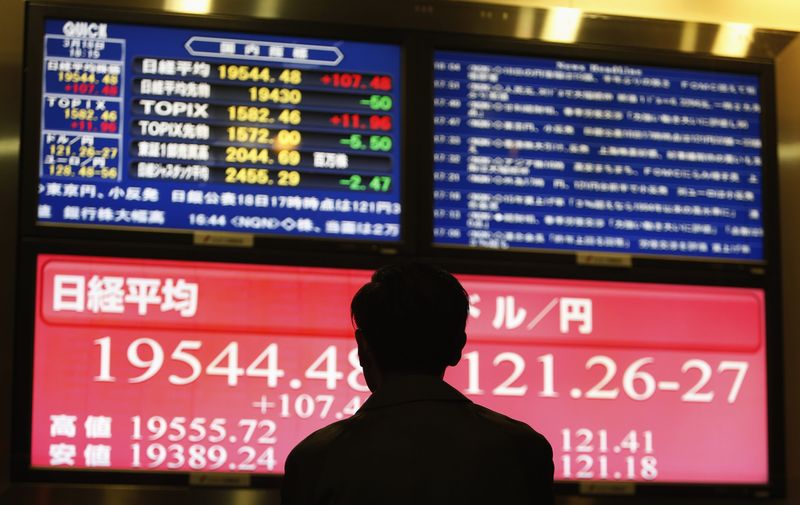
Investing.com-- Most Asian equities were lower on Monday as South Korean shares plunged to their lowest levels in more than a year on deepening political unrest in the country, while investors assessed key economic data releases from China and Japan.
Risk appetite among investors was timid as they were also worried about geopolitical tensions in the Middle East after after rebel forces ousted Syrian President Bashar al-Assad and took control of Damascus. Media reports said al-Assad had landed in Moscow, while Israeli forces had entered Syria.
S.Korean shares slide 2%, lead Asia shares lower
South Korea’s KOSPI fell more than 2% on Monday to its lowest level since early-November 2023. The index had lost more than 1% last week.
South Korea’s political crisis deepened as prosecutors launched a criminal investigation into President Yoon Suk Yeol on Sunday, over his attempt to impose martial law in the country.
Yoon survived an impeachment vote in the opposition-controlled parliament on Saturday, but the head of his own party said that Yoon would be sidelined before eventually resigning.
The political instability in South Korea has kept investors on the edge, as any escalations could have ripple effects all over Asia.
Philippine’s PSEi Composite index fell 0.7%, while Indonesia’s Jakarta Stock Exchange Composite Index was largely unchanged.
Australia’s S&P/ASX 200 inched 0.2% lower while India’s Nifty 50 Futures indicated a muted open on Monday.
Japan GDP, China CPI in focus spur muted reaction from stocks
Japan’s Nikkei 225 was up 0.3%, while the TOPIX climbed 0.4% after Monday’s revised gross domestic product (GDP) data showed that Japanese economy grew slightly more than expected in the third quarter. However, the reading was well below prior quarter’s rise.
cThe soft reading has raised doubts on the Bank of Japan’s ability to raise interest rates further. Markets remain divided on whether the BOJ will hike rates next week.
In China, the Shanghai Composite index was up 0.4%, while the Shanghai Shenzhen CSI 300 index edged 0.2% higher.
Data on Monday showed Chinese consumer inflation contracted more than anticipated in November, as recent stimulus efforts failed to counteract a persistent deflationary trend.
Producer price inflation in November also remained subdued, despite a mild improvement in business activity. The reading reflected more than two years of ongoing declines in PPI inflation, as China's factories faced challenges due to weak domestic demand, and sluggish property sector.
Focus this week will be on China’s annual Central Economic Work Conference (CEWC) for cues on more stimulus measures from the country’s central bank.
Hong Kong's Hang Seng index inched 0.1% higher.
Globally, investors are awaiting U.S. consumer price index inflation data, due on Wednesday, to further gauge the Federal Reserve’s interest rate outlook.
Data on Friday showed stronger-than-expected growth in nonfarm payrolls in November, but was not enough to move bets against a widely expected cut by Fed next week.
US stock futures were muted in Asian trade.

